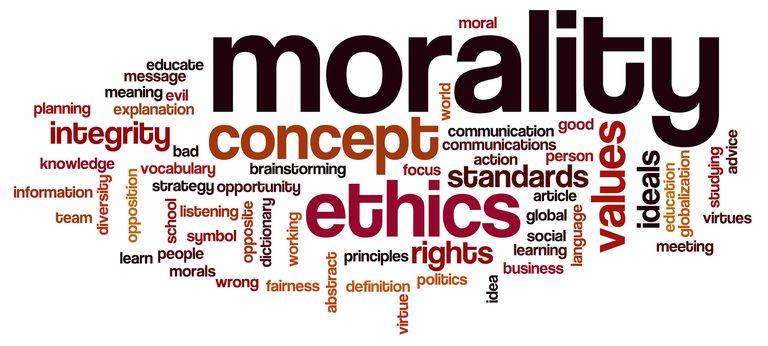Essentially, morality is a guide to behavior and attitudes. It is a sense of what is required and acceptable and what is necessary but not required. It is also a guide to the proper conduct of individuals and groups. The following paragraphs will examine some of the aspects of morality.

It is a guide for evaluating and engaging in attitudes and conduct
Moral convictions are based on beliefs about what is right and wrong. They are a powerful guide for behavior and carry strong emotional intensity. People often act in accordance with these beliefs because they provide an internal guide for behavior. They can be positive or negative, and their consequences may vary depending on the attitude.
Morals are principles that govern individual behavior within a society. They may change over time, but they remain standards of behavior. Individuals are expected to adhere to certain moral standards, as they help them decide what is right and what is wrong.
It is a sense of what is required and permitted
In its most basic definition, morality refers to the sense of what is required and permitted. Its entailment lies in a set of norms that a fully rational person would endorse. The notion of morality, in this sense, is derived from biological and cultural evolution.
Morality has many forms. It can be the code of conduct set forth by an actual group or an individual. It may also refer to important attitudes in an individual. It may be a way to avoid harm to other people or groups.
It is a sense of what is most important to a person or group
Morals are values and principles that guide human behavior. They are defined in terms of what is important for a person or group to do. A person or group's morals may be expressed in different ways, depending on the circumstances of their life. For example, a person may have strong beliefs about a certain topic, but that does not mean that they will follow them. Others may have a weak belief about a certain issue.
In general, morals include good manners and showing respect for others. Being respectful to other people shows that you care about them. It also demonstrates good judgment and consideration of others' feelings and interests.
It is a sense of what is rationally permissible but not required
Kant's view is essentially that morality is a sense of what is rationally right or wrong to do. This is similar to the Christian belief that morality is based on the commandments of God. Christians obey the commandments of God because they believe God commands them to, not because they think they should.
The definition of a "moral" action is often difficult to pinpoint. But some people argue that actions have moral value because they are motivated by a desire for a certain end. If we all wanted to be happy, we would be disposed to judge certain actions as good and others as bad. This view is commonly known as descriptive relativism.